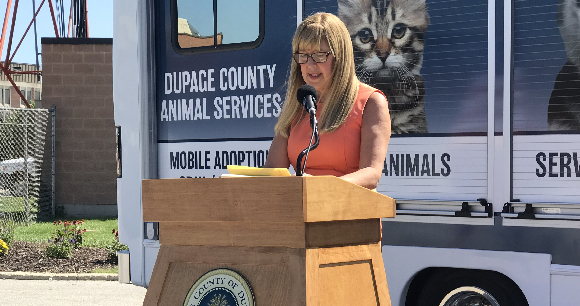
Washington, DC—The Animal Welfare Institute (AWI) welcomes the introduction today of the Animal Welfare Enforcement Improvement Act (H.R. 4211), which would protect animals from unscrupulous dealers and exhibitors and close existing loopholes in the US Department of Agriculture licensing process.
Introduced by US Rep. Raja Krishnamoorthi (D-IL), this legislation would end the USDA’s practice of automatically renewing exhibitor and dealer licenses even when licensees have long histories of failing to comply with the Animal Welfare Act (AWA), the primary federal law ensuring humane care of animals used in commercial enterprises.
Animal dealers, breeders and exhibitors—including large-scale commercial dog breeders, traveling circuses, roadside zoos, petting farms/zoos, animal acts, animal rides, exotic wildlife operations, and marine mammal facilities—are required to obtain a license annually and comply with the AWA. However, the current process relies on self-certification of compliance, and the USDA’s stated policy is to rubber-stamp renewals.
The bill would require animal dealers and exhibitors to renew their licenses annually, with each renewal contingent on passing an unannounced inspection by the USDA. Businesses determined to be noncompliant with the minimum care standards of the AWA, or that have repeatedly violated the AWA or local, state or other federal laws related to animals, would be denied licenses. Further, the USDA could permanently revoke a license (following a hearing) when a dealer or exhibitor has committed multiple animal welfare violations; such businesses would be barred from receiving a license under another business name or business partner.
The bill empowers citizens to file lawsuits to enforce the AWA, similar to what is provided for under federal environmental laws. The USDA, as it did prior to February of 2017, would also be required to publish all inspection reports, enforcement records and animal inventories online without redactions.
Congressman Krishnamoorthi announced the legislation today at DuPage County Animal Services in Wheaton, Illinois. He was joined by AWI President Cathy Liss, other national animal welfare advocates and local officials.
“For far too long, the USDA has failed to hold licensed dealers and exhibitors accountable for endangering the safety and welfare of animals,” Liss said. “We are grateful to Rep. Krishnamoorthi for seeking to ensure that animals receive the protections to which they are entitled under the law.”
Here is just one example of how the USDA’s current policy of automatic license renewal keeps chronic AWA violators in business:
For more than two decades, the USDA has filed complaints against Wild Wilderness, Inc., a notorious Arkansas tourist attraction operated by the Wilmoth family that exhibits domestic, wild and exotic animals. From January 2012 to November 2016, the USDA found that the facility violated the AWA, describing multiple disturbing incidents. Among them: A young lion was found dead in his enclosure, strangled by his collar; two ring-tailed lemurs were discovered out of their enclosure chewing on live electrical wire; a spider monkey was exposed to such extreme cold that he developed frostbite on his hands and feet and lost several digits; and an olive baboon chewed the end of his tail until it was completely severed. Workers and guests have been mauled by animals at Wild Wilderness, which operates both a drive-through zoo and an adjacent walk-through zoo and petting area. Yet, despite the facility’s abysmal track record, the USDA has refused to revoke its license.
“The Animal Welfare Act only works when it’s actually enforced,” Rep. Krishnamoorthi said. “I worked closely with the nation’s leading animal welfare advocates on this proposal to close longstanding loopholes and make sure the law is properly enforced. My constituents are compassionate, and they expect businesses that mistreat the animals in their care to be held accountable and prevented from doing further harm—that’s why this legislation is so important.”
Margie Fishman, (202) 446-2128, [email protected]